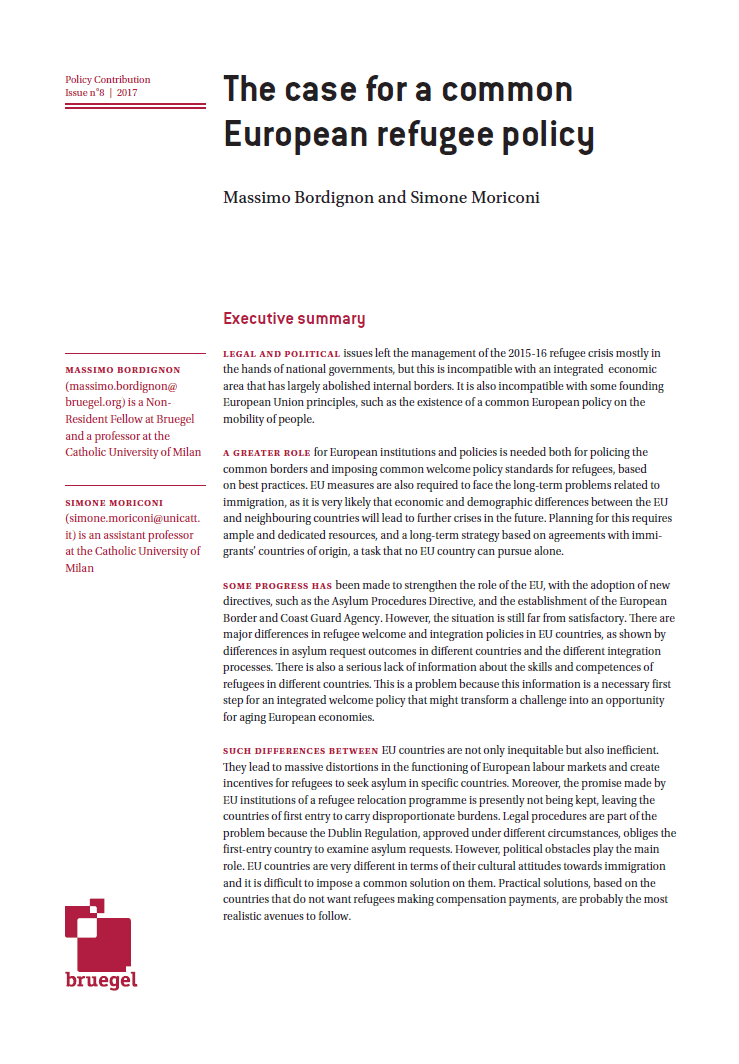Policy Contribution
The case for a common European refugee policy
This Policy Contribution discusses the needs for a European migration policy, and considers where more policy coordination is actually needed.
Legal and political issues left the management of the 2015-16 refugee crisis mostly in the hands of national governments, but this is incompatible with an integrated economic area that has largely abolished internal borders. It is also incompatible with some founding European Union principles, such as the existence of a common European policy on the mobility of people.
A greater role for European institutions and policies is needed both for policing the common borders and imposing common welcome policy standards for refugees, based on best practices. EU measures are also required to face the long-term problems related to immigration, as it is very likely that economic and demographic differences between the EU and neighbouring countries will lead to further crises in the future. Planning for this requires ample and dedicated resources, and a long-term strategy based on agreements with immigrants’ countries of origin, a task that no EU country can pursue alone.
Some progress has been made to strengthen the role of the EU, with the adoption of new directives, such as the Asylum Procedures Directive, and the establishment of the European Border and Coast Guard Agency. However, the situation is still far from satisfactory. There are major differences in refugee welcome and integration policies in EU countries, as shown by differences in asylum request outcomes in different countries and the different integration processes. There is also a serious lack of information about the skills and competences of refugees in different countries. This is a problem because this information is a necessary first step for an integrated welcome policy that might transform a challenge into an opportunity for aging European economies.
Such differences between EU countries are not only inequitable but also inefficient. They lead to massive distortions in the functioning of European labour markets and create incentives for refugees to seek asylum in specific countries. Moreover, the promise made by EU institutions of a refugee relocation programme is presently not being kept, leaving the countries of first entry to carry disproportionate burdens. Legal procedures are part of the problem because the Dublin Regulation, approved under different circumstances, obliges the first-entry country to examine asylum requests. However, political obstacles play the main role. EU countries are very different in terms of their cultural attitudes towards immigration and it is difficult to impose a common solution on them. Practical solutions, based on the countries that do not want refugees making compensation payments, are probably the most realistic avenues to follow.









